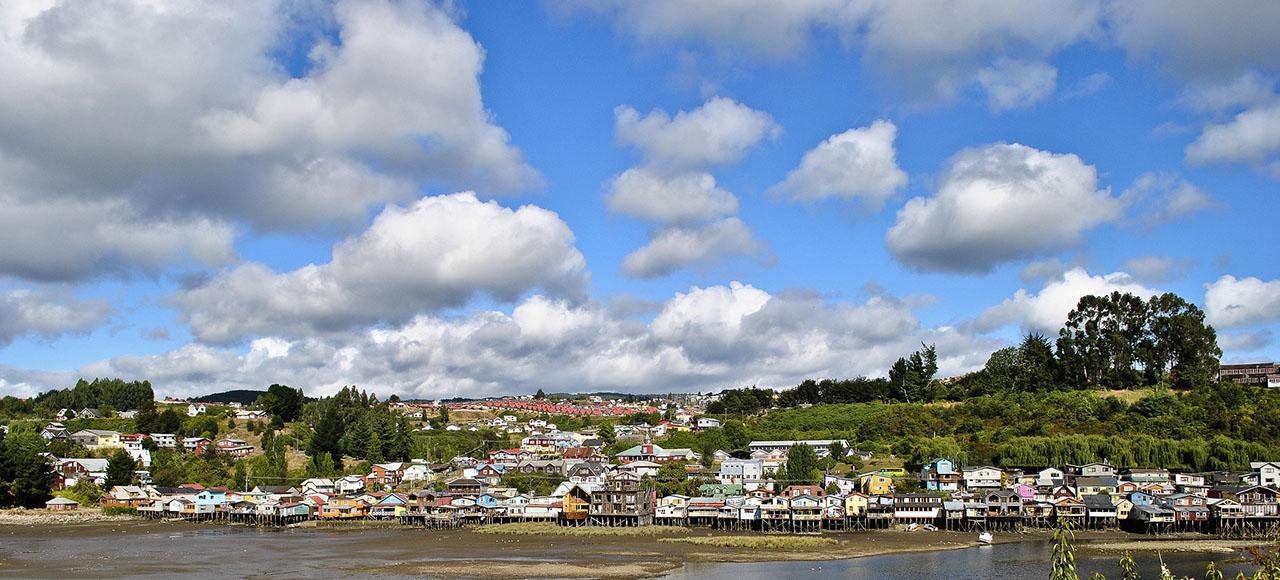10 must-see islands of the Chiloé Archipelago
By: Chile Travel - 28 August, 2021

Located in southern Chile, the Chiloé Archipelago is formed by more than 30 islands filled with natural beauty, a rich mythology, and unique cultural traditions. The most famous is the Big Island, the front door across the Chacao Channel and home of the biggest cities in the region: Ancud, Castro, and Quellón.

However, beyond the Big Island there are treasures scattered out among the sea that are just waiting to be explored. Grab a nautical map and put together an exceptional trip around the 10 must-seen islands of the Chiloé Archipelago.
1.- Lemuy: You can take a ferry from Castro to get to this island. Its main attraction is a stretch of land on one side that has become a natural viewpoint for looking out towards other islands, and it makes you feel as if you were floating out on the sea. Here visitors can do all kinds of activities, such as boat tours, hikes, and everyone’s favorite: walking across a hanging bridge in the middle of the Valdivian rainforest.
2.- Caucahué: Caucahué, that means “place of big seagulls”, is a small stretch of land that surprises with lush forests that reach up to beaches with deep blue waters, bestowing upon this area a feeling of peace and relaxation. You can enjoy spotting different species of wild birds here as well as getting in touch with nature that is almost entirely unspoiled.
3.- Butachauque: This island is renowned for its breathtaking sunsets, and its flat coastline affords visitors a panoramic view of the water and the fields. Because it is one of the smallest islands, Butachauque boasts a family environment and locals receive tourists with traditional food and local legends. It is even told that some of the classic myths of Chiloé originated here in the channels of water surrounding the island, such as the ghost ship Caleuche and the warlocks that turn into birds like the “tue tue”.
4.- Mechuque: This island has a quaint town divided by a channel of sea water. In order to cross it, pedestrians must use a flashy red bridge with a slight Eastern Asian appeal, which is the pride of the region. The majority of the homes here are built on the traditional palafitos (stilts) of the archipelago, which gives great added value to the rustic air of the landscape.
5.- Quenac: This island’s name originated in the Chonos culture and means “place that is unprotected from the winds.” Loaded with mysticism, Quenac has tons of stories about magical events. For example, the Dallín Lagoon, which is said was formed by the tears of a young virgin from the island.
6.- Tranqui: This is a paradise for outdoor adventure. It boasts a wide array of camping options and extreme sports such as rock climbing and canyoning in the areas surrounding the native forests and great beaches with grey sand.
7.- Quinchao: There is a ferry that sets sails 25 km to the north of Castro, on the coast of Dalcahue, that takes tourists and locals to the island of Quinchao in less than 5 minutes. Once you arrive, you will be able to visit a picturesque town that dates back to 1660: Curaco de Veléz. Take in the unique architecture of its houses made with alerce wood and cypress tiles, and visit the Our Lady of Grace of Quinchao Church, a World Heritage Site.
8.- Aucar: Called “The Island of Seafaring Souls” by the Chilote writer Francisco Coloane, Aucar attaches and detaches from solid ground depending on the level of the tide. To get there, visitors must cross a long wood bridge with a majestic beauty. At the end of it, visitors are welcomed by a vast botanical garden containing all of the native flowers and trees of Chiloé.
9.- San Pedro: Due its small population, San Pedro allows visitors to completely escape from the rest of the world (an ideal getaway for couples). On its waters, you can spot blue whales and penguins, or sail calmly through a romantic lagoon located on the island.
10.- Metalqui: The coast of this island has become home to a sea lion colony that shares the beach with different bird species, which are a real treat for visitors.

















